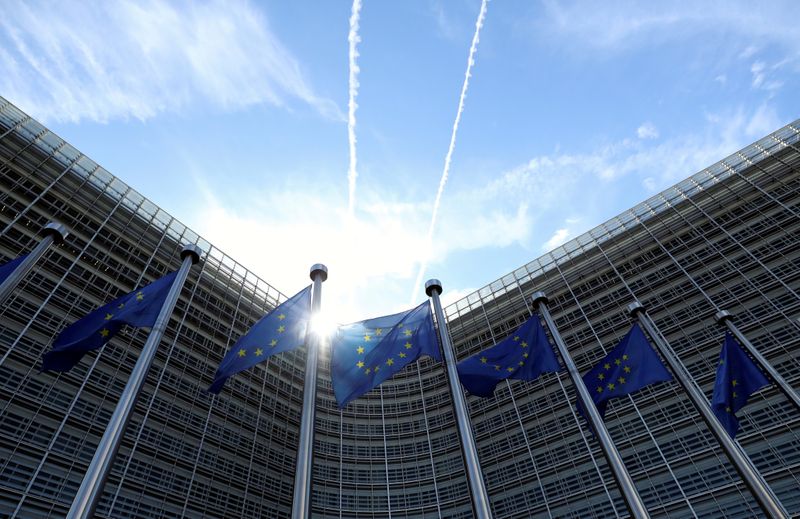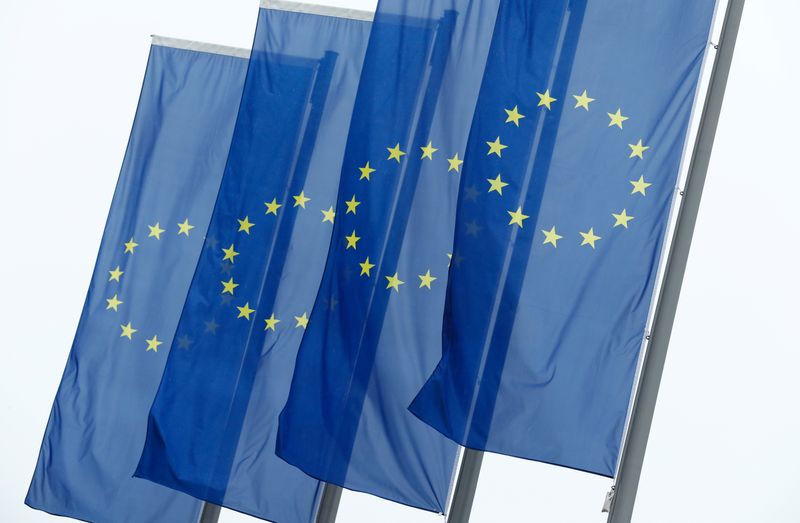By Jan Strupczewski
BRUSSELS (Reuters) - Negotiators from the European Parliament and EU governments agreed the details of the 2021-2027 EU budget on Tuesday, in a crucial step for the activation of the bloc's 1.8 trillion euro (£1.6 trillion) recovery package to make the economy greener and more digital.
"A deal for Europe - Council and European Parliament negotiators reach political agreement on the EU budget & recovery package," the spokesman for the German presidency of the EU Sebastian Fischer said on Twitter.
The deal, which took almost four months to negotiate, now needs to be formally endorsed by EU governments and the European Parliament.
This may cause new friction because the deal links access to EU money with respect for the rule of law -- a condition Poland and Hungary strongly oppose because they are under EU scrutiny for undermining the independence of the courts and media.
Hungarian Prime Minister Viktor Orban has sent a letter to the European Commission and the chairman of EU leaders Charles Michel threatening to veto the 1.1 trillion euro budget if the link between the money and the rule of law is not removed.
But senior officials said they were not sure if Hungary would do that, because such action would derail money for all of the 27-nation EU, including Hungary and Poland themselves, both of which were net beneficiaries of EU financial support.
Poland especially is among the largest recipients of direct EU subsidies for farmers who are the electoral base of the ruling nationalist PiS party. If Warsaw and Budapest bloc the next budget, the subsidies for farmers will stop.
"We will have to see whether anyone is going to block anything at all," one senior EU official said.
NEW REVENUES
The deal between parliament and government negotiators raises EU spending on health, education and security by 16 billion euros compared to the agreement of EU leaders in July.
It also establishes new, dedicated revenues for EU coffers so the bloc can repay the 750 billion euros it plans to borrow to help the recovery after the COVID-19 pandemic.
"By 2026, we will have a basket of new revenues that should be sufficient to cover the cost of the Recovery Fund’s debt with the aim of not having cuts in funds and programmes," said one of the parliamentary negotiators, Jose Manuel Fernandes.
Over the next weeks, talks between EU lawmakers and governments will continue on the details of the 750 billion borrowing, of which 672.5 billion is to be distributed among governments as loans and grants on the basis of their national recovery plans listing various projects and reforms.
The parliament wants more of that money to be paid up front, before the projects reach agreed milestones and more of the cash to be earmarked for projects that help reduce CO2 emissions.
Lawmakers also want the cash to be available longer -- for four years instead of three.
Once governments and parliament agree, the deal can be ratified by national parliaments in the EU's 27 countries and the money would start flowing in the second half of next year.
"The budget, the Recovery Fund, new revenues and the rule of law conditionality are one package for us," said Siegfried Mursan, a senior MEP responsible for budgetary issues.

"Parliament will ratify today's deal only if Member States stick to all parts of the agreement," he said.
